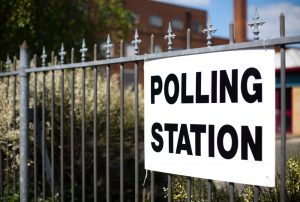
Christianah Babajide, one of Lawbore’s legal journalists, is currently reading her LLB at City Law School. An aspiring barrister, Christianah is Communications Officer of City University’s Law Society, and also writes for CAREERS (City’s Careers blog). In this piece, she reports back on a Legal Cheek panel event debating the upcoming referendum.
The Panel (all Partners from Shearman & Sterling LLP) consisted of James Webber (EU and UK Competition Law), John Adams (Antitrust and Asset Management) and Matthew Powell (Mergers & Acquisitions). We found out that James is a graduate of the University of Birmingham, John from UCL and Matthew from the University of Oxford.
This event focused on the future for law students in the legal market, and the potential economic consequences of a vote for the UK to leave the EU on the 23rd.
Is the Future for Law Students bleak?
The Brexit vote has created a lot of uncertainty and may have made many law students question how this might affect the likelihood of them being able to practice the law.
The panel of Partners reassured an audience of 50 that their graduate recruitment team will not be significantly affected in the event of Brexit. Despite the fact that financial services may take a hit if we were to Brexit, they agreed that other sectors such as engineering will not be affected as critically.
John was optimistic about the possibility of Brexit, in which he emphasised that “the world will keep turning regardless of the result of the EU referendum.” He sees there being an immense pull for quality people in the city of London and this demand won’t change anytime soon, therefore, the future of potential lawyers in Great Britain should not look all that bleak.
 However, James and Matt feared that a Brexit scenario may set off a domino effect which will cause a similar collapse to that of Lehman Brothers on the UK economy. They highlighted the importance and purpose of the referendum. James said “this referendum was not made irrationally; it was made by human beings working under pressure.”
However, James and Matt feared that a Brexit scenario may set off a domino effect which will cause a similar collapse to that of Lehman Brothers on the UK economy. They highlighted the importance and purpose of the referendum. James said “this referendum was not made irrationally; it was made by human beings working under pressure.”
Despite Shearman & Sterling reliance on the single market which will be affected by a Brexit, the partners reassured us of healthy alternatives. In addition, John outlined the main reason why people want to exit: “people need something new and exciting such as change and that is exactly what this EU referendum is offering. Therefore, Brexit has its pros and cons.” If we were to leave, there is a strong argument that the UK will be seen as important regardless, because of its ability to create opportunities with other global leaders from Africa, Brazil and China. The possibilities are endless. However, James made it clear he was on the Remain campaign because Britain leaving the EU presented unattractive alternative such as Donald Trump, Russia and the Middle East.
The Constitutional Principle of Sovereignty
It is common knowledge that in the relationship between the EU and the UK, EU law takes precedence and is arguably sovereign. A poll of lawyers at the end of May indicated just 57% of lawyers were backing Bremain, with many lawyers giving their support to the Leave campaign. This compares to a Legal Cheek survey from March where 75% wanted the UK to stay within the EU. The UK is used to dealing with foreign influences. It comes as no surprise, therefore, that lawyers embrace the EU within the UK’s complex system. John highlighted that “we have an increasing number of laws that are created, drafted and proposed by the EU, these people are not elected by the UK’s general public.”
At the other end of the spectrum, John explained why people in Britain are against Brexit. He says this is because the UK is traditionally conservative with a pragmatic view and is content with what they have and scared of the big C (change). He ventured the view that from a philosophical view, people don’t care about sovereignty and it doesn’t matter to them.
Conclusion
The graduate recruitment event was informative and offered a unique insight into the short-term and long-term consequences of Brexit. Alex concluded the evening by asking the room who was team Brexit and who would ‘Bremain’ – a show of hands indicated the majority would be voting ‘In’. I am personally optimistic that we will vote to Remain. And even if we don’t, the UK will survive.

